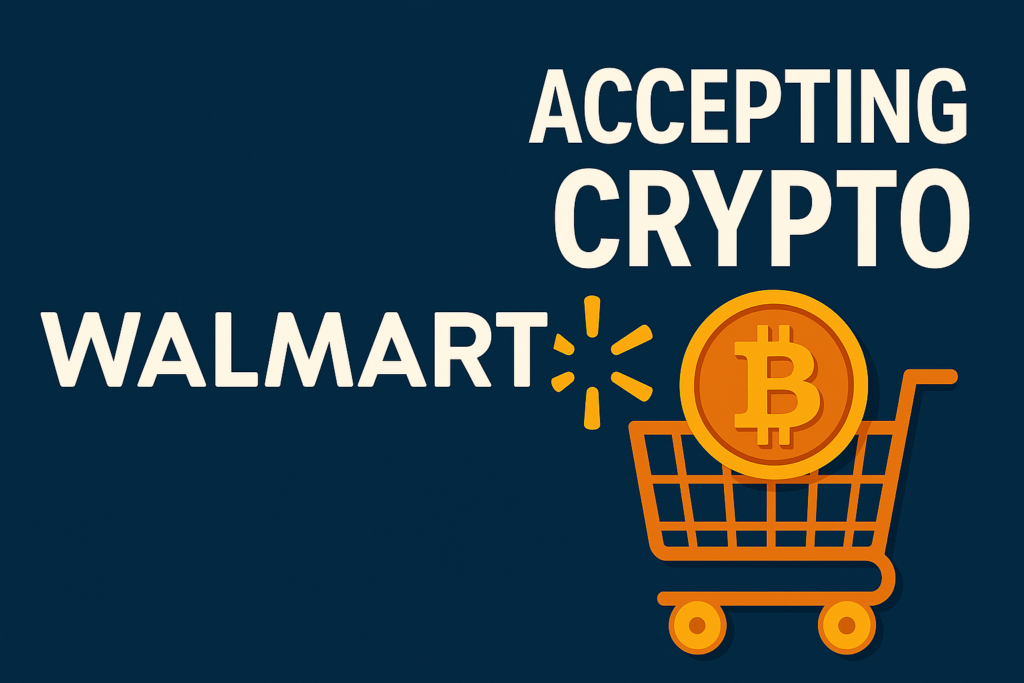As the world’s largest retailer, Walmart has long been a barometer for consumer trends. Now, with reports that Walmart is preparing to accept cryptocurrency payments, the retail landscape may be on the verge of a transformative shift.
From Pilot Programs to Mainstream Adoption
While Walmart has not officially launched full-scale crypto payments nationwide, several indicators point toward serious preparations:
- Job listings for blockchain and crypto product leads.
- Partnerships with payment providers exploring stablecoin integrations.
- A 2022 patent filing for digital currency infrastructure.
These moves suggest that Walmart isn’t merely experimenting — it’s laying the groundwork for long-term adoption.
Why It Matters
If Walmart rolls out crypto payments, the implications would be huge:
- Legitimization: A retail giant accepting crypto would signal validation to both consumers and businesses.
- Increased utility: Everyday use of Bitcoin or stablecoins in stores could shift crypto from investment to practical currency.
- Boost for stablecoins: Walmart is more likely to support stablecoins like USDC or its own potential token to avoid volatility.
Challenges Ahead
Despite the upside, Walmart faces hurdles:
- Regulatory scrutiny over crypto payments and data privacy.
- Volatility risks for non-stablecoins like Bitcoin.
- Consumer education, since mainstream adoption requires demystifying wallets and keys.
What’s Next?
Experts believe that Walmart may begin with:
- Gift card purchases via crypto.
- Online-only payment trials before physical store rollouts.
- Stablecoin or CBDC integration, avoiding the chaos of volatile tokens.
If successful, Walmart could set a precedent — leading other retail giants to follow suit and accelerating global crypto adoption in daily life.







